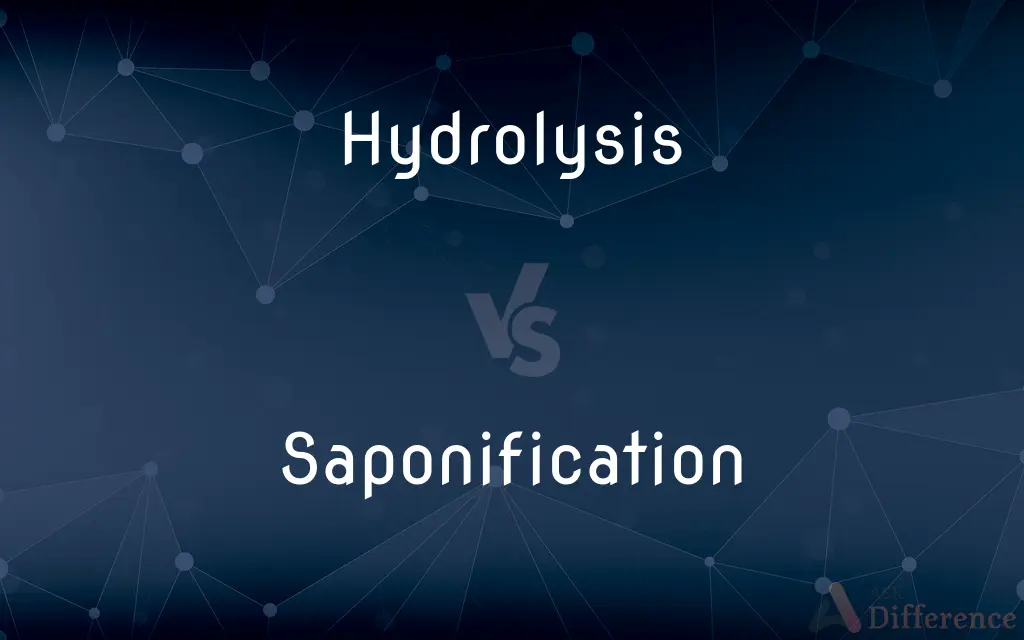Hydrolysis vs. Saponification — What's the Difference?

Difference Between Hydrolysis and Saponification
ADVERTISEMENT
Compare with Definitions
Hydrolysis
Hydrolysis (; from Ancient Greek hydro- 'water', and lysis 'to unbind') is any chemical reaction in which a molecule of water breaks one or more chemical bonds. The term is used broadly for substitution, elimination, and solvation reactions in which water is the nucleophile.Biological hydrolysis is the cleavage of biomolecules where a water molecule is consumed to effect the separation of a larger molecule into component parts.
Saponification
Saponification is a process that involves the conversion of fat, oil, or lipid, into soap and alcohol by the action of aqueous alkali (e.g. NaOH).) Soaps are salts of fatty acids, which in turn are carboxylic acids with long carbon chains.
Hydrolysis
The reaction of water with another chemical compound to form two or more products, involving ionization of the water molecule and usually splitting the other compound. Examples include the catalytic conversion of starch to glucose, saponification, and the formation of acids or bases from dissolved ions.
Saponification
A reaction in which an ester is heated with an alkali, such as sodium hydroxide, producing a free alcohol and a carboxylate salt, especially alkaline hydrolysis of a fat or oil to make soap.
Hydrolysis
(chemistry) A chemical process of decomposition involving the splitting of a bond and the addition of the hydrogen cation and the hydroxide anion of water.
ADVERTISEMENT
Saponification
(chemistry) The hydrolysis of an ester under basic conditions to form an alcohol and the salt of the acid.
Hydrolysis
A chemical process causing the splitting of a chemical bond by the addition of the elements of water. Where the bond which is split is not part of a ring structure, this process causes formation of two compounds from one compound plus water, as in the hydrolysis of the ester bonds of fats during saponification.
Saponification
The reaction of a metallic alkali (base) with a fat or oil to form soap.
Hydrolysis
A chemical reaction in which water reacts with a compound to produce other compounds; involves the splitting of a bond and the addition of the hydrogen cation and the hydroxide anion from the water
Saponification
The act, process, or result, of soap making; conversion into soap; specifically (Chem.), the decomposition of fats and other ethereal salts by alkalies; as, the saponification of ethyl acetate.
Saponification
A chemical reaction in which an ester is heated with an alkali (especially the alkaline hydrolysis of a fat or oil to make soap)
Share Your Discovery

Previous Comparison
Theory vs. Headcanon
Next Comparison
Vicky vs. Victoria















































